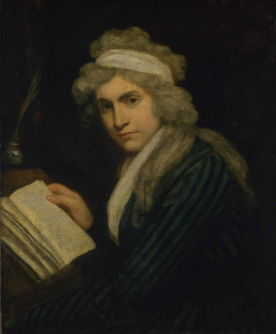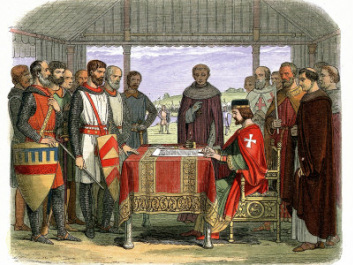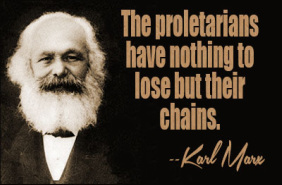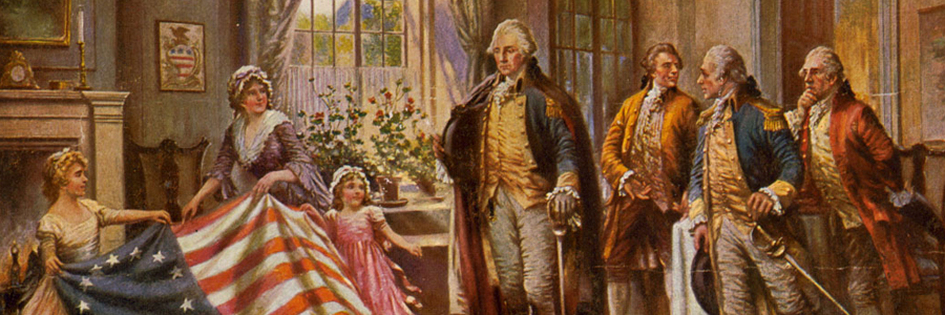Social Sciences
Social Sciences concerns political judgment and the values of the society which strengthen it.
These works
reveal a structure of thinking and acting in the world that allows a broad
understanding of historical issues and the Western societies that grappled with
them.
Social Sciences I
Western Political Tradition, Modern Theories of State and Society, History of Western Civilization, Society, Culture and Personality
Western Political Tradition, Modern Theories of State and Society, History of Western Civilization, Society, Culture and Personality

YuCai International Course students will be introduced to the search for the “good life” through politics, a human quest since antiquity. One’s education as a citizen of the state is the foundation of the classical formulation of a liberal arts education. The central objective of this course is the education of such citizens, those who participate through public judgment in shaping the political world, Such an education requires an understanding of the founding documents of the American political system as well as other seminal works of Western thought.
Goals
Students will gain an understanding of fundamental tenets of Western political thought; students will become familiar with seminal original sources underlying modern political theory; students will be able to analyze and discuss complex ideas; students will learn to write essays conforming to academic standards.
Main Texts
Tests and Assessments
In Social Sciences, the Great Books faculty leaders will work with students’ ability to read and analyze an approach to historical milieu or context. Short weekly essays, a midterm test, a final comprehensive semester essay test and final semester projects will be due in this course.
Grading
Oral Participation (25%) Homework (15%) Essays (20%) Papers (20%) Test Scores (20%)
Student self-assessments in Collaboration and Individual Contribution will also be measured.
Students will gain an understanding of fundamental tenets of Western political thought; students will become familiar with seminal original sources underlying modern political theory; students will be able to analyze and discuss complex ideas; students will learn to write essays conforming to academic standards.
Main Texts
- Citizens of the World: Readings in Human Rights
- Plato, "Republic"
- Aristotle, Politics
- St. Thomas Aquinas, "Treatise on Law"
- Niccolò Machiavelli, The Prince
- Thomas Hobbes, Leviathan
- John Locke, Second Treatise on Civil Government
- Jean-Jacques Rousseau, Social Contract
- The United States Declaration of Independence
- The United States Constitution
- The Federalist Papers
- Adam Smith, An Inquiry into the Nature and Causes of the Wealth of Nations
- Charles de Secondat, Baron de Montesquieu, The Spirit of the Laws
- Mary Wollstonecraft, Vindication of the Rights of Women
Tests and Assessments
In Social Sciences, the Great Books faculty leaders will work with students’ ability to read and analyze an approach to historical milieu or context. Short weekly essays, a midterm test, a final comprehensive semester essay test and final semester projects will be due in this course.
Grading
Oral Participation (25%) Homework (15%) Essays (20%) Papers (20%) Test Scores (20%)
Student self-assessments in Collaboration and Individual Contribution will also be measured.
Social Sciences II
Political Leanings, What is Right, and Civil Discourse
Political Leanings, What is Right, and Civil Discourse

In the second year of Social Sciences, YuCai International Course students will be introduced to the question of “what is right” through political aspirations of groups and individuals throughout Western history. Often political groups can be swayed by the best oral argument in taking right actions. So too the individual leader can influence the opinion and development of discourse.
The central objective of this course is the education of informed citizens who evaluate through a critical lens the words and passions in texts and speeches presented to them. Such an education requires an understanding of the expanded theories in Western political systems, such as the influence of European feudalism on the formation of the United States of America, as well as other seminal works of Western thought.
The course is organized to teach students how to engage with others in the arts of civil debate and critique. The readings and texts will expand students’ abilities to understand the importance of the original documents that form the basis of Western political thought and legal systems. The course format emphasizes comprehension and analysis of complicated written discourse.
The central objective of this course is the education of informed citizens who evaluate through a critical lens the words and passions in texts and speeches presented to them. Such an education requires an understanding of the expanded theories in Western political systems, such as the influence of European feudalism on the formation of the United States of America, as well as other seminal works of Western thought.
The course is organized to teach students how to engage with others in the arts of civil debate and critique. The readings and texts will expand students’ abilities to understand the importance of the original documents that form the basis of Western political thought and legal systems. The course format emphasizes comprehension and analysis of complicated written discourse.
Goals
Students will gain an understanding of fundamental doctrines of Western political development; students will become familiar with the historical context in which modern systems of belief evolved into rule of law; students will be able to analyze and discuss these complex ideas through the lens of observers and participants; students will learn to write expanded expository essays to meet academic standards.
Main Texts
Tests and Assessments
In Social Sciences, the Great Books faculty leaders will work with students’ ability to read and analyze an approach to historical milieu or context. Short weekly essays, a midterm test, a final comprehensive semester essay test and final semester projects will be due in this course.
Grading
Oral Participation (25%) Homework (15%) Essays (20%) Papers (20%) Test Scores (20%)
Student self-assessments in Collaboration and Individual Contribution will also be measured.
Students will gain an understanding of fundamental doctrines of Western political development; students will become familiar with the historical context in which modern systems of belief evolved into rule of law; students will be able to analyze and discuss these complex ideas through the lens of observers and participants; students will learn to write expanded expository essays to meet academic standards.
Main Texts
- Mortimer Adler, How to Think About the Great Ideas
- Aristotle, "Politics" (In Introduction to Great Books 2)
- Magna Carta (In Citizens of the World)
- John Locke. "Of Civil Government" (In Introduction to Great Books 2)
- Thomas Hobbes, "Of Commonwealth" (In Introduction to Great Books 2)
- Alexis de Tocqueville, "Why Great Revolutions Will Become Rare" (In Introduction to Great Books 3)
- John Locke, "On the Limits of Government" (In Introduction to Great Books 3)
- Alexis de Tocqueville, Why Americans are Often so Restless (In Introduction to Great Books 2)
- The Will of the People: Readings in American Democracy
- Wide Open Spaces: Cluster One and Cluster Two
Tests and Assessments
In Social Sciences, the Great Books faculty leaders will work with students’ ability to read and analyze an approach to historical milieu or context. Short weekly essays, a midterm test, a final comprehensive semester essay test and final semester projects will be due in this course.
Grading
Oral Participation (25%) Homework (15%) Essays (20%) Papers (20%) Test Scores (20%)
Student self-assessments in Collaboration and Individual Contribution will also be measured.
Social Sciences III
Western Political Tradition, Modern Theories of State and Society, Economic Theories and Practice
Western Political Tradition, Modern Theories of State and Society, Economic Theories and Practice

The third year of Social Sciences concerns the evolution of political theory and systems, and a corresponding analysis of economic theory and practices. Students will answer the question: how do different political and economic systems interact with each other, and impact the lives of their citizens, in an increasingly globalized world?
Expectations: Building on their previous two years, YuCai International Course students in Gao San will analyze Enlightenment theories that form the underpinnings of modern political structures, including utilitarianism, Marxism, and the social contract. Further, they will compare and contrast contemporary political systems and their associated economic systems.
Students will then engage in an in-depth analysis of the roots of western economic theory, and current economic structures. An additional in-depth study option will be available for those students wishing to take the AP Microeconomics test.
Organization: The course is organized to teach students how to engage with historical literature and to inspire students to expand their horizons in terms of intellectual interests in the field of social science. The writing assignments increase in depth and complexity in this course as the students work on style and substance in critical reviews, critiques, and group projects related to chosen subject areas.
Expectations: Building on their previous two years, YuCai International Course students in Gao San will analyze Enlightenment theories that form the underpinnings of modern political structures, including utilitarianism, Marxism, and the social contract. Further, they will compare and contrast contemporary political systems and their associated economic systems.
Students will then engage in an in-depth analysis of the roots of western economic theory, and current economic structures. An additional in-depth study option will be available for those students wishing to take the AP Microeconomics test.
Organization: The course is organized to teach students how to engage with historical literature and to inspire students to expand their horizons in terms of intellectual interests in the field of social science. The writing assignments increase in depth and complexity in this course as the students work on style and substance in critical reviews, critiques, and group projects related to chosen subject areas.
Goals
Students will gain an understanding of fundamental texts that evolved into modern political systems, including Democracy, Socialism, Communism and Theocracy. Students will also develop an in-depth knowledge of the capitalist economic model, as well as variations of the traditional model as seen in Europe and China. Students will develop an academic model for themselves through investigative research and development of their contacts and resources in these fields.
Main Texts
Tests and Assessments
In Social Sciences, the Great Books faculty leaders will work with students’ ability to read and analyze an approach to historical milieu or context. Short weekly essays, a midterm test, a final comprehensive semester essay test and final semester projects will be due in this course.
Grading
Oral Participation (25%) Homework (15%) Essays (20%) Papers (20%) Test Scores (20%)
Student self-assessments in Collaboration and Individual Contribution will also be measured.
Students will gain an understanding of fundamental texts that evolved into modern political systems, including Democracy, Socialism, Communism and Theocracy. Students will also develop an in-depth knowledge of the capitalist economic model, as well as variations of the traditional model as seen in Europe and China. Students will develop an academic model for themselves through investigative research and development of their contacts and resources in these fields.
Main Texts
- Ian Shapiro, The Moral Foundations of Politics
- Consuming Interests: Great Ideas in Economics
- Citizens of the World – Readings in Human Rights
- Plato, The Republic
- John Suart Mill, On Liberty
- Thomas Hobbes, Leviathan
- Niccolò di Bernardo dei Machiavelli ,The Prince
- Karl Marx, Das Kapital
Tests and Assessments
In Social Sciences, the Great Books faculty leaders will work with students’ ability to read and analyze an approach to historical milieu or context. Short weekly essays, a midterm test, a final comprehensive semester essay test and final semester projects will be due in this course.
Grading
Oral Participation (25%) Homework (15%) Essays (20%) Papers (20%) Test Scores (20%)
Student self-assessments in Collaboration and Individual Contribution will also be measured.

